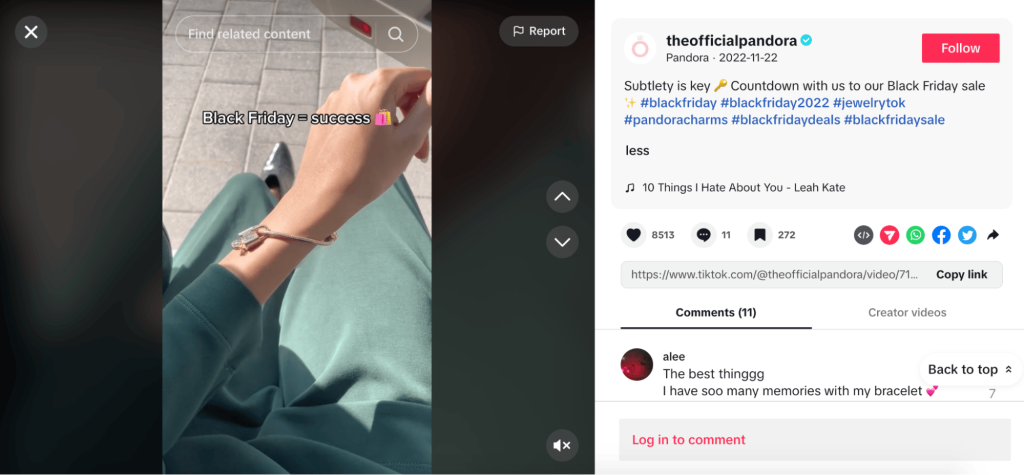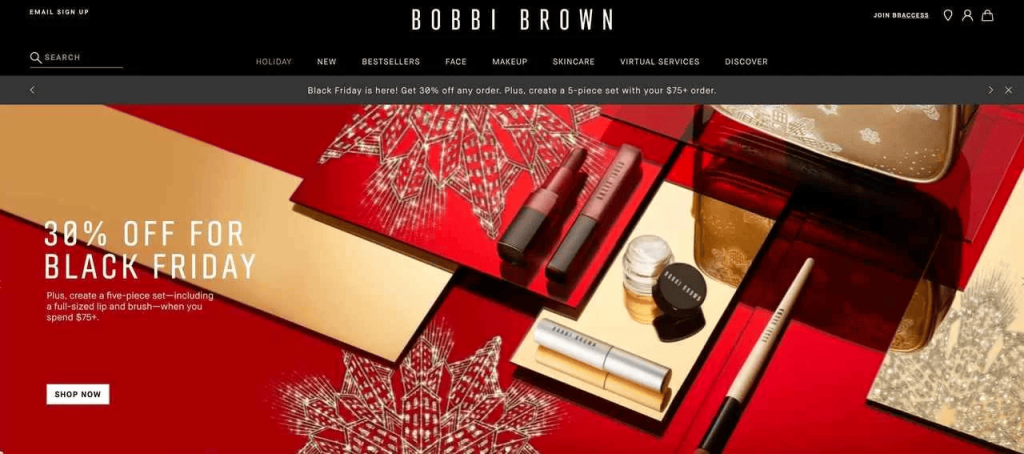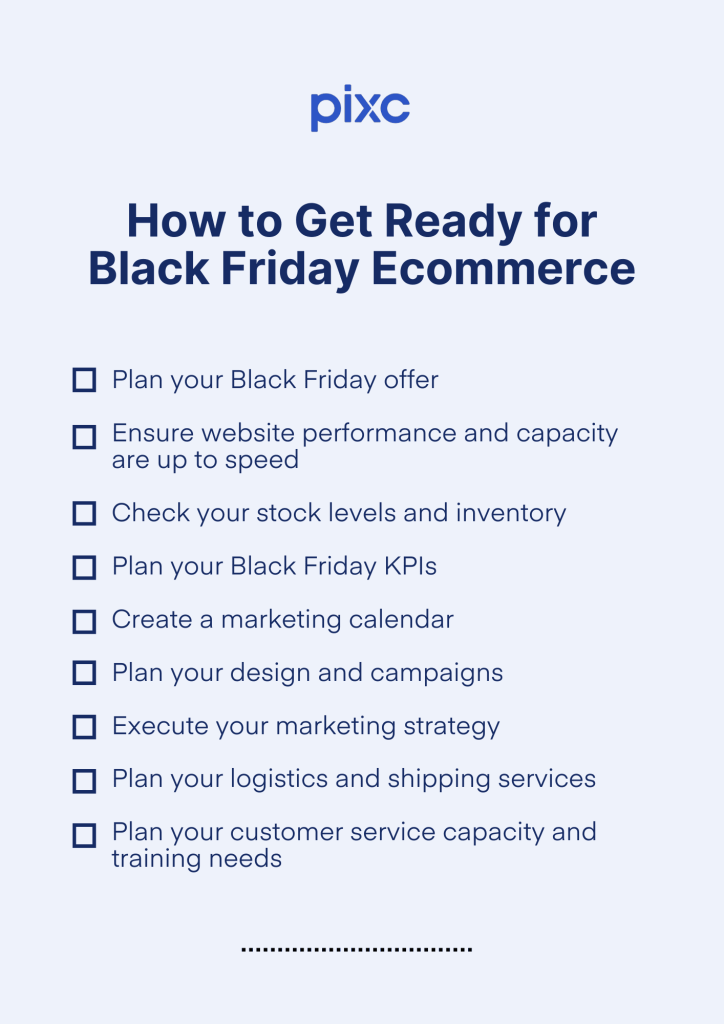As the holiday season approaches, so does one of the year’s biggest shopping days: Black Friday and Cyber Monday. It’s just as big a deal for ecommerce businesses as it is for in-store, with record numbers of people staying home to shop every year.
That’s why getting ahead of the game and thinking about your Black Friday Cyber Monday ecommerce strategy and planning now is important. Don’t wait until November to decide what you will do for your ecommerce business.
What you need to know about Black Friday and Cyber Monday
Black Friday and Cyber Monday are two of the biggest shopping events in the US, marking the unofficial start of the holiday shopping season. Black Friday occurs on the Friday following Thanksgiving Day (November 24, 2023) and is traditionally associated with massive discounts, limited-time deals, and early morning store openings.
Cyber Monday falls on the Monday right after Black Friday (November 27, 2023), with retailers offering discounts, deals, and offers on their websites.
It used to be that Black Friday was more focused on in-store retail sales, and Cyber Monday was more on online sales. But over time, it’s evolved. Now, there isn’t that distinction; it runs across the entire weekend.
Black Friday was the biggest day for in-store shopping in the U.S. in 2022, reaching 72.9 million consumers, up almost 15% YoY. As for online shopping, 87.2 million U.S. consumers shopped on Black Friday in 2022, roughly equal to 2021.
What will Black Friday look like for you this year? For your ecommerce brand to get a share of this huge ecommerce opportunity, you must start thinking about your Black Friday strategy ahead of November.
Planning for Black Friday / Cyber Monday 2023
Planning for Black Friday is important for a successful and stress-free day for you as a brand owner and your customers. Getting ahead means you can ensure everything you need is in place and anticipate any possible issues that might crop up.
Here’s everything you need to think about when it comes to planning your Black Friday activities:
- Plan your Black Friday offer: Offering discounts is a Black Friday tradition, but it’s essential to crunch the numbers to ensure your discounts won’t eat into your profits. Look for products with a healthy profit margin that can take being discounted as much as you need.
- Ensure website performance and capacity are up to speed: Make sure your website can handle a surge in traffic before it happens. Test it on various devices and browsers to guarantee an easy customer experience for all online shoppers. Slow-loading pages or site crashes can hinder your Black Friday targets, so check it out first.
- Check your stock levels and inventory: Check which products are in high demand and which might need restocking. Also, check out if there’s anything that isn’t selling that you might want to discount to move on Black Friday and Cyber Monday heavily.
- Plan your Black Friday KPIs: More on this later, but this data-driven approach enables you to make informed decisions, allocate resources efficiently, and optimize your marketing efforts to achieve your sales and revenue goals.
- Create a marketing calendar: Your marketing calendar should outline when each offer or discount will be launched, like your pre-sale teasers, the main event, and post-sale follow-ups. This can help build anticipation and excitement among your customers.
- Plan your design and campaigns: At this step, you’re crafting compelling marketing messages, designing eye-catching visuals, and planning the launch of your campaigns across various channels such as email, social media, paid advertising, and more. The goal is to create a cohesive and persuasive narrative that effectively communicates your Black Friday offers, discounts, and value propositions.
- Plan your logistics and shipping services: Prepare for increased sales by partnering with reliable shipping and logistics providers. They’ll know Black Friday’s on the way, so they should also have scaled accordingly. Ensure your customers know their options and consider offering expedited shipping options for those last-minute online shoppers.
- Plan your customer service capacity and training needs: Be prepared to handle any inquiries promptly and professionally, and remember, it might be way more than usual. Consider increasing your customer support staff so there are more hands on deck, and make sure they’re trained ahead of time.
Setting your sales objectives for Black Friday
Setting clear and achievable sales objectives for Black Friday is vital ahead of Black Friday. Begin by reviewing your past Black Friday sales data to assess how well you did and set your goals.
Take your overall business goals and financial targets for the year, too. Black Friday can be an opportunity to accelerate your progress towards these goals. Being clear about your goals is crucial. It could be wanting to increase revenue by a specific percentage, reach a certain number of units sold, or achieve a particular order value.
Here are some of the metrics to take into account when you’re setting your objectives and KPIs for Black Friday:
- Total sales revenue
- Conversion rate
- Average order value
- Traffic and site visits
- Shopping cart abandonment
- Customer acquisition cost and return on investment
After Black Friday and Cyber Monday are done, you’ll also want to monitor return rates and how that affects your sales.
Black Friday Ecommerce Marketing Ideas
Managing Black Friday alongside the days leading up to it can be tricky, as some customers may wait to see the offers you provide on the actual day.

Here are some tips on how to do Black Friday without tanking your sales for the rest of November.
Market research
Before starting your Black Friday marketing, perform market research to grasp your customers’ desires and analyze past actions by competitors (including their expected future actions). It’s also valuable to gather insights on when they begin promoting their Black Friday deals. This will help you target your audience’s preferences, behaviors, and shopping habits.
Communication and marketing strategy
Build up a strategy for how and when you’re going to communicate with your audience.
You can actually A/B test i.e., divide your customer base into segments, create personalized messaging for each segment, and test different messaging with different audiences.
Set up timings and responsibilities and plan your campaigns to ensure you hit your audience at the right times. It’s also important to highlight unique selling points and exclusive offers – remember to hint and build excitement.
You can even offer early access to your Black Friday deals for loyal customers and subscribers. It rewards their loyalty, creates urgency, and offers them a sense of exclusivity. This can be through your email newsletter (and can be segmented so different messages and subject lines go out to different audiences, as mentioned above).
Social Media
Utilize your social media platforms to tease Black Friday deals in the weeks leading up to the event. Use visually appealing graphics and countdowns to generate excitement.

Encourage followers to share and engage with your content to increase reach or unlock extra deals, and encourage your audience on other channels to follow you on social too.
Utilizing paid advertising can significantly expand your social media outreach as well.
Website

Optimize your website for Black Friday by ensuring fast loading times, easy navigation, and mobile responsiveness. Create dedicated Black Friday landing pages to showcase your deals prominently.
Make navigation easy and clear for your customers to find everything they need on Black Friday to increase your sales and minimize frustration.
Paid ads
We already touched on this when we talked about social, but it’s also worth mentioning in a wider context. Invest in targeted pay-per-click (PPC) advertising on platforms like Google Ads and social media. Use specific keywords and demographics to reach potential customers actively searching for Black Friday deals.
PR and journalists
Many journalists, publishers, and news outlets do Black Friday deal roundups. It makes sense for you to ensure that your best brand deals are in there, too.
To enhance your brand’s credibility and reach a wider audience, collaborate with media outlets and industry influencers to secure press coverage and endorsements for your Black Friday promotions.
You can use this to bolster your content marketing strategy, delivering the information your audience seeks about your Black Friday deals. This could be your deals roundup, gift guides, product spotlights, or how-to articles.
Good quality imagery
Invest in top-notch product photography and graphics that showcase your products at their best, whether they’re featured in ads, on your website, or in social media feeds.
By optimizing your images with Pixc’s editing tools, you create professional imagery quickly and easily, helping you to increase sales conversions.
Key takeaways for Black Friday
Black Friday and Cyber Monday, often considered the unofficial launch of the holiday sales season, have evolved into a retail phenomenon that stretches across an entire weekend.
Effective planning is essential to make the most of this critical sales period. Then, you need to carry out your plans in the run-up to the day. Striking the right balance between Black Friday and pre-event sales is key.









